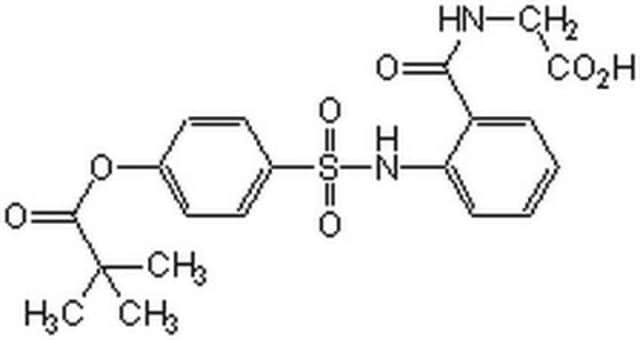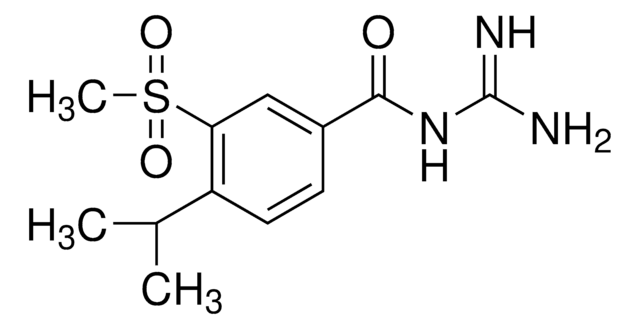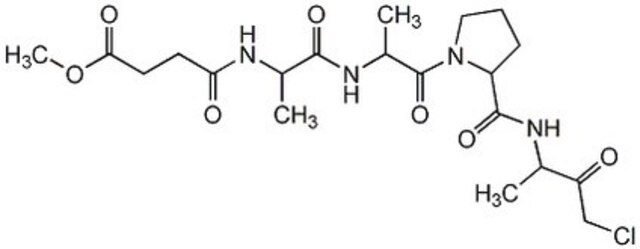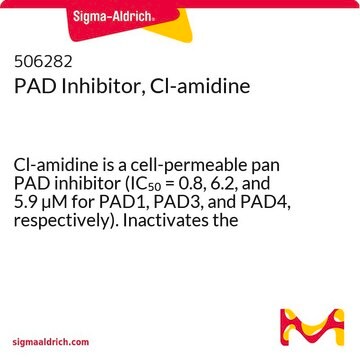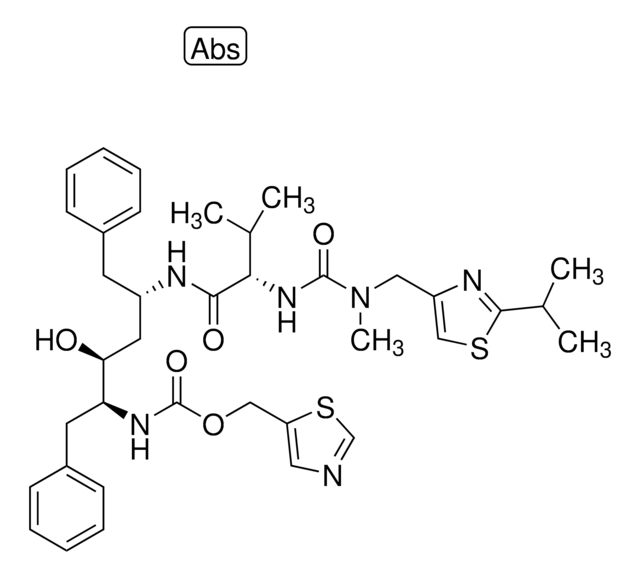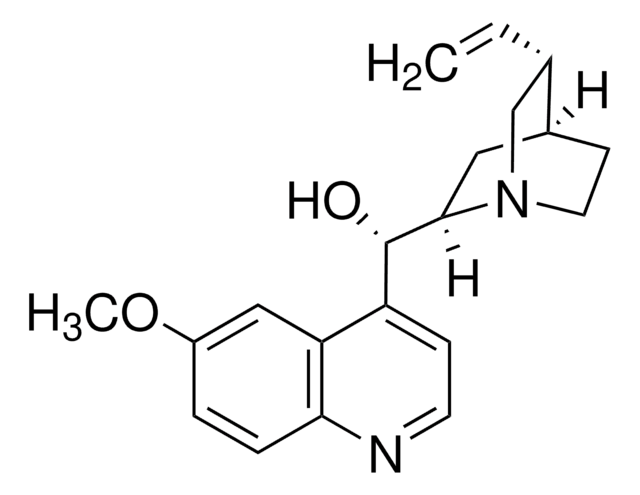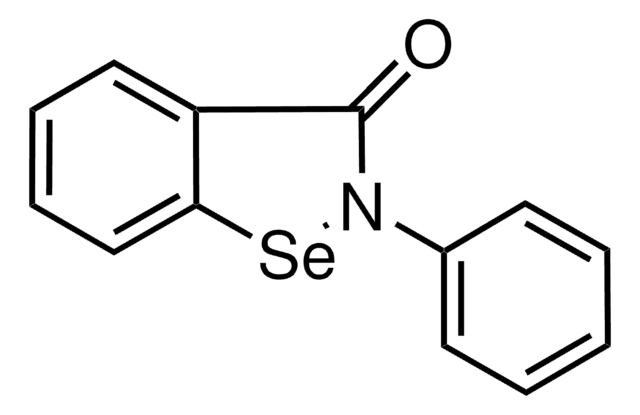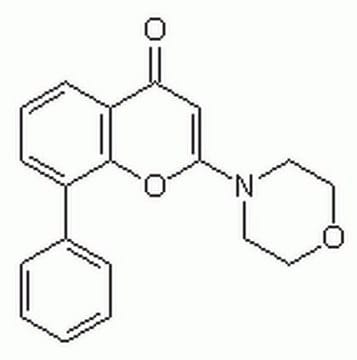S7198
Sivelestat sodium salt hydrate
≥98% (HPLC), solid
Synonym(s):
EI 546 sodium salt hydrate, Elaspol sodium salt hydrate, LY 544349 sodium salt hydrate, Ono-5046 sodium salt hydrate, o-(p-Hydroxybenzenesulfonamido)hippuric acid, pivalate (ester) sodium salt hydrate
About This Item
Recommended Products
Quality Level
assay
≥98% (HPLC)
form
solid
color
white to off-white
solubility
DMSO: 10 mg/mL, clear
storage temp.
room temp
InChI
1S/C20H22N2O7S/c1-20(2,3)19(26)29-13-8-10-14(11-9-13)30(27,28)22-16-7-5-4-6-15(16)18(25)21-12-17(23)24/h4-11,22H,12H2,1-3H3,(H,21,25)(H,23,24)
InChI key
BTGNGJJLZOIYID-UHFFFAOYSA-N
Application
Biochem/physiol Actions
Storage Class
11 - Combustible Solids
wgk_germany
nwg
flash_point_f
Not applicable
flash_point_c
Not applicable
ppe
Eyeshields, Gloves, type N95 (US)
Certificates of Analysis (COA)
Search for Certificates of Analysis (COA) by entering the products Lot/Batch Number. Lot and Batch Numbers can be found on a product’s label following the words ‘Lot’ or ‘Batch’.
Already Own This Product?
Find documentation for the products that you have recently purchased in the Document Library.
Customers Also Viewed
Our team of scientists has experience in all areas of research including Life Science, Material Science, Chemical Synthesis, Chromatography, Analytical and many others.
Contact Technical Service